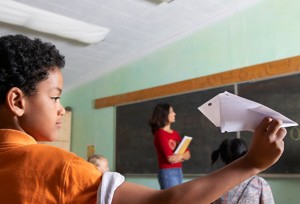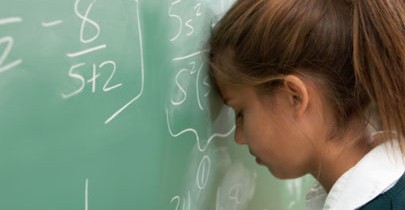Featured Reading on Underachievement and GT Learners
What is underachievement and how does it fit into supporting our GT learners? As follow-up to our recent chapter meeting, we’ve put together featured reading and other resources on the topic to support area students, educators, and parents.
First, let’s dispel a key myth. Underachievement is not about perfect marks, the number of AP courses a student takes, the extracurricular activities a student pursues, or even struggling with a concept. These unfortunate misconceptions feed into common stereotypes about GT learners.
 Instead, underachievement reflects a negative pattern of changed behaviors and attitudes over time that directly impact student growth and potential. For example, an underachieving GT learner might tune out or disengage when they face:
Instead, underachievement reflects a negative pattern of changed behaviors and attitudes over time that directly impact student growth and potential. For example, an underachieving GT learner might tune out or disengage when they face:
- Stress from significant family changes (unemployment, divorce, a severe health issue, etc.)
- Limited access to learning interventions or instructional strategies that meet their needs and abilities
- Peer criticism, bullying, or being singled out for academic strengths, aka, downplaying strengths in order to fit in, avoid hassle, or manage self-esteem and social networks
- An un-diagnosed or mis-diagnosed condition such as ADHD, dyslexia, dysgraphia, etc.
Gail Post, Ph.D., goes into greater depth about how to recognize gifted underachievement at the Gifted Challenges blog:
- Underachievers under the radar: How seemingly-successful gifted students fall short of their potential (23 Nov 2015)
- Who is the gifted underachiever? Four types of underachievement in gifted children (1 Feb 2016)
- What causes gifted underachievement? (16 Feb 2016)
Additional Reading on Underachievement
- From our January 2016 meeting, Recognize & Reverse Underachievement in Gifted Learners – handouts (.pdf), including recommended reading Sarah introduced and highlighted during our discussion
- The underachievement of gifted learners: What do we know and where do we go? by Sally M. Reis and D. Betsy McCoach in Gifted Child Quarterly, vol. 44, no. 33 – full online access available with NAGC membership
- The gifted underachiever by Kevin Wickersham, 11 Nov 2014 at NSGT
- Using self-regulated learning to reverse underachievement in talented students by Sally M. Reis and Meredith J. Green at NEAG Center for Creativity, Gifted Education and Talent Development, University of Connecticut
- Underachievement in Exceptionally Gifted Adolescents and Young Adults: A Psychiatrist’s View by Jerald Grobman, M.D., from the Journal of Secondary Gifted Education. 2006 17(4) 199-210; reprinted by permission of Prufrock Press at SENG
- Giftedness and academic underachievement: What lies beneath by Andrew S. Mahoney, M.S., L.P.C., L.M.F.T., at Counseling the Gifted
- Parenting strategies to motivate underachieving gifted students by Del Siegle, Ph.D., Duke TIP Digest of Gifted Research, 29 Aug 2006
- Meeting the needs of gifted underachievers — individually! by J. Smutney, originally printed in 2E Newsletter Dec 2004 via Davidson Gifted
Look for these and further articles on Underachievement, plus other topics related to GT learners, at our Resources page.


